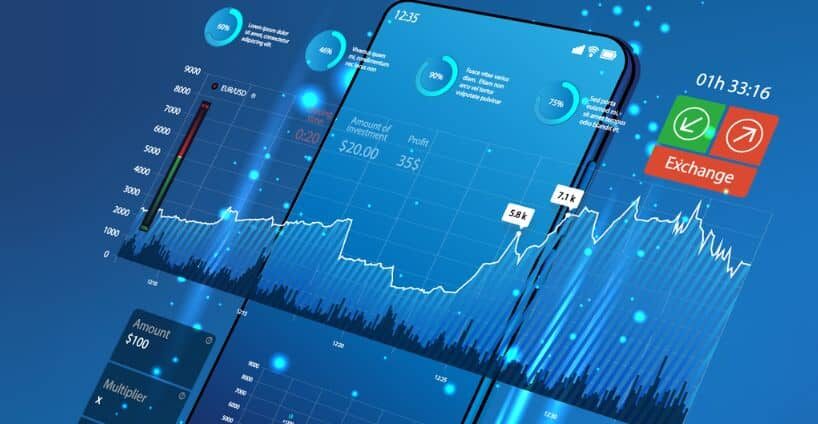The Indonesia forex trading regulations: risks and rewards

Forex trading in Indonesia is a new concept; BAPPEBTI, the commodities and futures trading regulatory agency, regulates the forex market in Indonesia. BAPPEBTI was founded in 2005 with the sole aim of regulating the trading markets in Indonesia. This agency brought strict regulations and guidelines that offered financial services to its clients because many investors have lost money by illegal trading, scams, and traders manipulated by non-regulated brokers.
BAPPEBTI comes under the supervision of the Indonesian Government of the Ministry of Finance and is controlled by the Administrative Board of Members and industry experts. The Indonesian population is significant, and it is an Islamic country. Indonesia is a country that is open to a wide range of opportunities, and the residents have taken to forex trading, which is widespread in the country. In this article, we have explained Indonesia’s forex trading regulations and their importance.
The Basics of Forex Trading
- Foreign exchange markets, also known as Forex, are one of the largest trading markets that have drawn in more investors and traders to invest. This market has no centralized authority because of its size; nobody can claim or control them.
- Forex market transactions are carried out instantly; by financial institutions like banks, businesses, and individuals. Governments participate in these transactions daily. These institutions need foreign currency to carry out their transactions when they buy/sell services.
- When a trader chooses a trading platform to trade foreign exchange currencies, in this market, currencies are traded in pairs like EUR/USD or whichever currency pair they prefer. Traders can use their funds from their trading accounts to buy currency pairs of their choice.
- When the trader places the order, it is placed with the interbank forex market or a forex broker. Based on the strategy, the trader can wait for the currency’s price to go up to buy/sell them. When the trader gains profit, he can close the order and go for the next currency pair of his choice.
The Importance of Forex Trading Regulations
- Foreign exchange markets, also known as Forex, are one of the largest trading markets that have drawn in more investors and traders to invest. This market has no centralized authority because of its size; nobody can claim or control them.
- Forex market transactions are carried out instantly; by financial institutions like banks, businesses, and individuals. Governments participate in these transactions daily. These institutions need foreign currency to carry out their transactions when they buy/sell services.
- When a trader chooses a trading platform to trade foreign exchange currencies, in this market, currencies are traded in pairs like EUR/USD or whichever currency pair they prefer. Traders can use the funds from their trading accounts to buy currency pairs.
- When the trader places the order, it is placed with the interbank forex market or a forex broker. Based on the strategy, the trader can wait for the currency’s price to go up to buy/sell them. When the trader gains profit, he can close the order and go for the next currency pair of his choice.
Overview of Indonesia’s Forex Trading Regulations
Until 2012, there was not much competition in Indonesia, where various global forex brokers had established a considerable presence in the forex market. In this period, there was a massive surge in forex brokers offering exclusive services in the Indonesian market, luring Indonesian traders to invest their money in this market. This has resulted in financial malpractices and more broker scams in the country.
In 2013, the government took steps to oversee the forex trading regulations. Bank Indonesia managed the forex market, the country’s central bank, and the commodity futures trading regulatory agency, BAPPEBTI. These regulatory bodies aim to ensure that Indonesian forex trading is carried out transparently and sagely, which benefits both traders and brokers.
One of the essential requirements for forex brokers in Indonesia is obtaining a license from the Bank Indonesia, the central bank, to operate in Indonesia legally. The brokers can obtain the license provided they meet specific criteria, and they should show their financial stability to offer their customers a secure and safe forex trading environment.
Aside from getting a license from the regulatory body, the best Indonesia forex brokers should follow strict regulations by them. They should follow strict reporting guidelines and provide timely and accurate information regarding their trading activities. They should have adequate capital reserves to protect their trader’s funds and should make sure it meets their financial expectations.
BAPPEBTI’s role is to enforce and oversee their regulations and ensure that forex brokers in Indonesia comply with the forex regulations they set forth. The regulatory body also investigates whether the broker follows these regulations failing which their licenses will be revoked.
Pros and Cons of Indonesia’s Forex Trading Regulations
Here are a few pros and cons of Indonesia’s forex trading regulations discussed –
Pros
- One of the significant advantages of enforcing forex trading regulation is that it helps to maintain market stability. This helps forex brokers operate in a regulated environment, which helps to avert frauds and scams that destabilize the forex market and impact the investors’ confidence.
- This regulation allows brokers to get licenses and offer investor protection by maintaining adequate capital reserves. This can significantly reduce the risk of losing clients’ money, fraud, or insolvency. Also, these regulations avoid illegal activities such as terrorist financing and money laundering.
Cons
- One significant disadvantage is that it will restrict the growth and development of the forex trading industry. It will make the small forex brokers enter the industry as it requires substantial capital and strict requirements compared to large brokers.
- Regulations should cope with the ever-changing forex market; new trading strategies and technologies are coming up every day, changing the forex market’s course.
Challenges Facing Indonesia’s Forex Trading Industry
Indonesia’s forex trading industry faces several challenges that hinder its growth and development.
- One of the significant challenges is access to technology that is limited in remote areas of the country. This will be a problem for traders accessing the trading platform tools when compared with brokers in developed countries.
- Several Indonesian investors need to learn about forex trading, and traders need more education. This can make inexperienced traders make poor investment choices or become fraud victims.
- Illegal trading activities can be a significant challenge in Indonesia. Brokers who are not licensed might provide incentives and attractive rates to attract investors who might end up in fraudulent activities.
Future Outlook for Indonesia’s Forex Trading Regulations
Indonesia’s forex trading has seen significant development and continues to grow. One of the existing regulatory requirements is that the broker should have a high capital requirement to protect investors’ investments, which is not possible for small brokers to compete with them.
Trading in the forex market requires constant access to the latest technology and specifically for those residing in remote areas. This will not help traders to access the latest trading tools, which might hinder a few traders who trade from remote areas.
Indonesia, in recent years, has been keen on promoting the growth and development of the forex industry by providing more initiatives. It has tried to educate its investors, promote the industry through awareness, and reduce the fraud and scams prevailing in the sector. Also, it has added regulatory measures to streamline the process to promote a growth-friendly environment for traders and brokers.
Conclusion
To conclude, Indonesia has promoted forex trading by protecting forex traders and brokers by offering a transparent and safe environment. The strict regulations implemented by BAPPEBTI and the central bank of Indonesia are designed to ensure transparency, prevent frauds/scams, ensure fair competition, and security for investor funds. Both traders and brokers should comply with regulations to ensure any legal issues. We highly recommend that traders in Indonesia choose regulated brokers with due diligence, ensuring they are trustworthy and reputable brokers. Also, traders should comply with KYC and anti-money laundering regulations, an essential process before opening an account.



